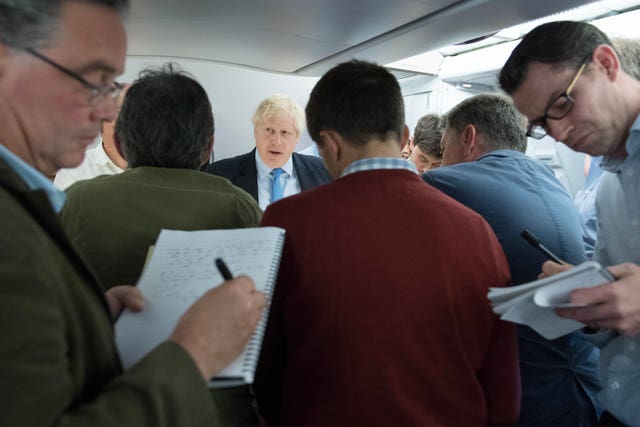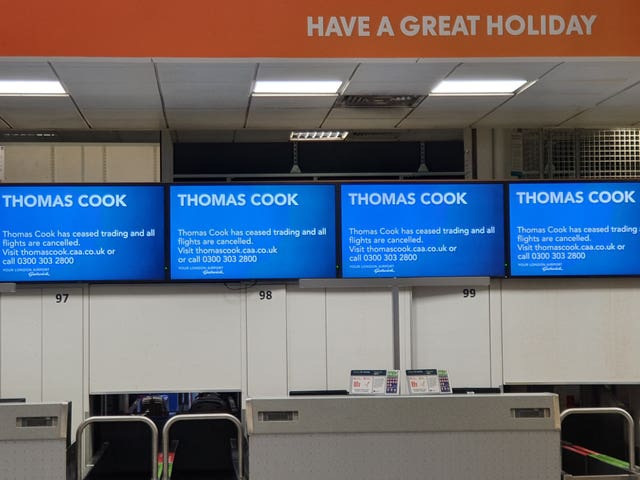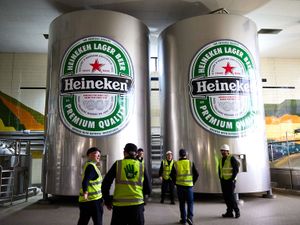Boris Johnson defends refusal to give Thomas Cook a taxpayer bailout
The Prime Minister suggested that intervention risked creating a ‘moral hazard’.
Boris Johnson defended his refusal to bail out Thomas Cook, warning that state intervention risked creating a “moral hazard” in future cases of companies on the brink.
The Prime Minister has come under fire from Labour and the unions for failing to step in to save the collapsed tour operator.
“It is perfectly true that a request was made to the Government for a subvention of about £150 million,” the Prime Minister told reporters.
“Clearly that’s a lot of taxpayers’ money and sets up, as people will appreciate, a moral hazard in the case of future such commercial difficulties that companies face.”
Other ministers suggested the sum requested by Thomas Cook was up to £250 million.

Moral hazard is the concept that firms will take increased risks if they believe that they will be protected from the consequences, for example through a state bailout.
Downing Street said it was not the role of the Government to prop up failing companies in a competitive market.
“A bail-out would not have been a good use of taxpayers’ money. We would have had to repatriate people later down the line and have lost more money in the process,” a No 10 spokeswoman said.
“It is obviously a very competitive market and it isn’t the Government’s role to prop up companies when this sort of issue arises.
“Our decision was the injecting cash into the situation was not going to make it any better.”

But shadow chancellor John McDonnell blamed the Tory Government’s “ideological bias” against state intervention for the decision not to intervene.
“The Government’s intervention could have enabled us to just stabilise the situation, give a breathing space so that there could be proper consultation with the workforce in particular about how to go forward,” he told the BBC.
“To just stand to one side and watch this number of jobs go and so many holidaymakers have their holiday ruined, I just don’t think that’s wise government.”
Union bosses also condemned the Government’s refusal to act, claiming that the cost of the exercise to bring stranded holidaymakers’ home would dwarf the amount of taxpayer support requested by the firm.
Manuel Cortes, leader of the Transport Salaried Staffs Association, said the Government had chosen “ideological dogma over saving thousands of jobs”.
“There remains the question of repatriating 150,000 British holidaymakers and the cost to the public purse of doing so,” he said.
“You don’t have to be a mathematical genius to know it would have been cheaper and more cost effective to save what is a cornerstone of the British high street.”
Unite general secretary Len McCluskey said: “The Government’s ‘do nothing’ attitude has left workers and customers high and dry while landing taxpayers with a bill of hundreds of millions of pounds.”
But Transport Secretary Grant Shapps said the repatriation operation would cost £100 million, less than the sum requested by Thomas Cook.
“The company were asking for up to £250 million, they needed about £900 million on top of that and they’ve got debts of £1.7 billion, so the idea of just spending taxpayers’ money on that just wasn’t really a goer,” he told ITV’s Good Morning Britain.
“I think the problem of putting money into it, apart from the fact governments don’t usually go around investing in travel companies, is that it may have just stretched things out for a couple of weeks and we could have been exactly where we started.”





